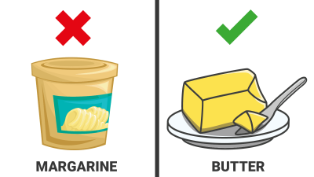When it comes to improving your health, knowing what to avoid can be just as important as what to include. Some foods are so commonly consumed that people rarely question their impact—yet research and real-world results consistently point to the same offenders. Below are three foods widely considered detrimental to long-term health and fitness, along with practical alternatives.
1. Seed Oils (Vegetable Oils)
Seed oils such as soybean, canola, corn, and sunflower oil are common ingredients in processed foods. Though often marketed as heart-healthy, these oils are typically refined at high heat, stripped of nutrients, and high in omega-6 fatty acids—contributing to systemic inflammation and metabolic imbalances.
- Commonly found in sauces, dressings, and condiments
- Often used for frying in restaurants and fast food chains
- Associated with oxidative stress and metabolic disorders
- Marketed as “vegetable oils” for broader consumer appeal
To make a healthier choice, opt for cooking fats like butter, ghee, avocado oil, or coconut oil—especially for high-heat cooking.

2. Ultra-Processed Soy Products
While soy is often considered a meat alternative, many soy-based products are ultra-processed and chemically altered. Ingredients like soy protein isolate and soy oil are frequently found in plant-based meats, protein bars, and meal replacements—yet they are among the most common food sensitivities detected in dietary testing.
- Highly processed and often genetically modified
- Common in “health” foods marketed as better-than-meat
- Linked to digestive sensitivity and hormonal disruption
- Often flagged in food sensitivity tests
For better plant-based nutrition, consider whole-food options like lentils, chickpeas, or fermented soy (e.g., tempeh or miso) in moderation.
3. Fast Food and Deep-Fried Foods
Fast food is typically made with low-grade oils, preservatives, and artificial ingredients. Even seemingly healthier options are often cooked in reused seed oils, increasing the risk of consuming oxidized fats and harmful additives. Some fast food meats even contain dozens of unnecessary ingredients and fillers.
- Often fried in reused, oxidized seed oils—creating trans fats
- Loaded with preservatives, fillers, and chemical additives
- Linked to inflammation, weight gain, and digestive issues
- May include ingredients found in non-food products (e.g., Silly Putty or yoga mats)
Healthier fried options can be made at home using oils like avocado oil or tallow, which have high smoke points and are more stable under heat. Some brands—such as Zero Acre oil—offer cooking oils specifically designed for high-heat stability.
What About Margarine?
Margarine is often promoted as a butter substitute, but it’s typically made from hydrogenated seed oils and artificial additives. Unlike butter, margarine lacks natural fat-soluble vitamins and may contain trans fats depending on the manufacturing process.
Butter, in contrast, is made from cream and salt and contains a balance of saturated and monounsaturated fats along with essential fat-soluble nutrients like Vitamins A, D, and K2. Used in moderation, it’s a much cleaner choice for cooking and flavoring food.

Final Thoughts
Making smarter dietary choices often starts by cutting out the worst offenders. Eliminating seed oils, ultra-processed soy, and fast food from your routine can help improve digestion, energy, and long-term wellness. Read labels carefully, choose whole foods, and remember: just because a product says “natural” doesn’t mean it’s good for you.
If you’re located in Northern Nevada, check out the nutrition program at Parkway Athletic Club. Their team offers real-world coaching to help you build a sustainable, healthy routine.
Need personalized nutrition guidance? The Gut Girl works with clients both locally and remotely to address gut health, inflammation, and hormone balance.
Video Summary
To learn more about nutrition, fitness, and health from professionals and experts, visit our channel and subscribe: https://www.youtube.com/@Vitality-and-Wellness



